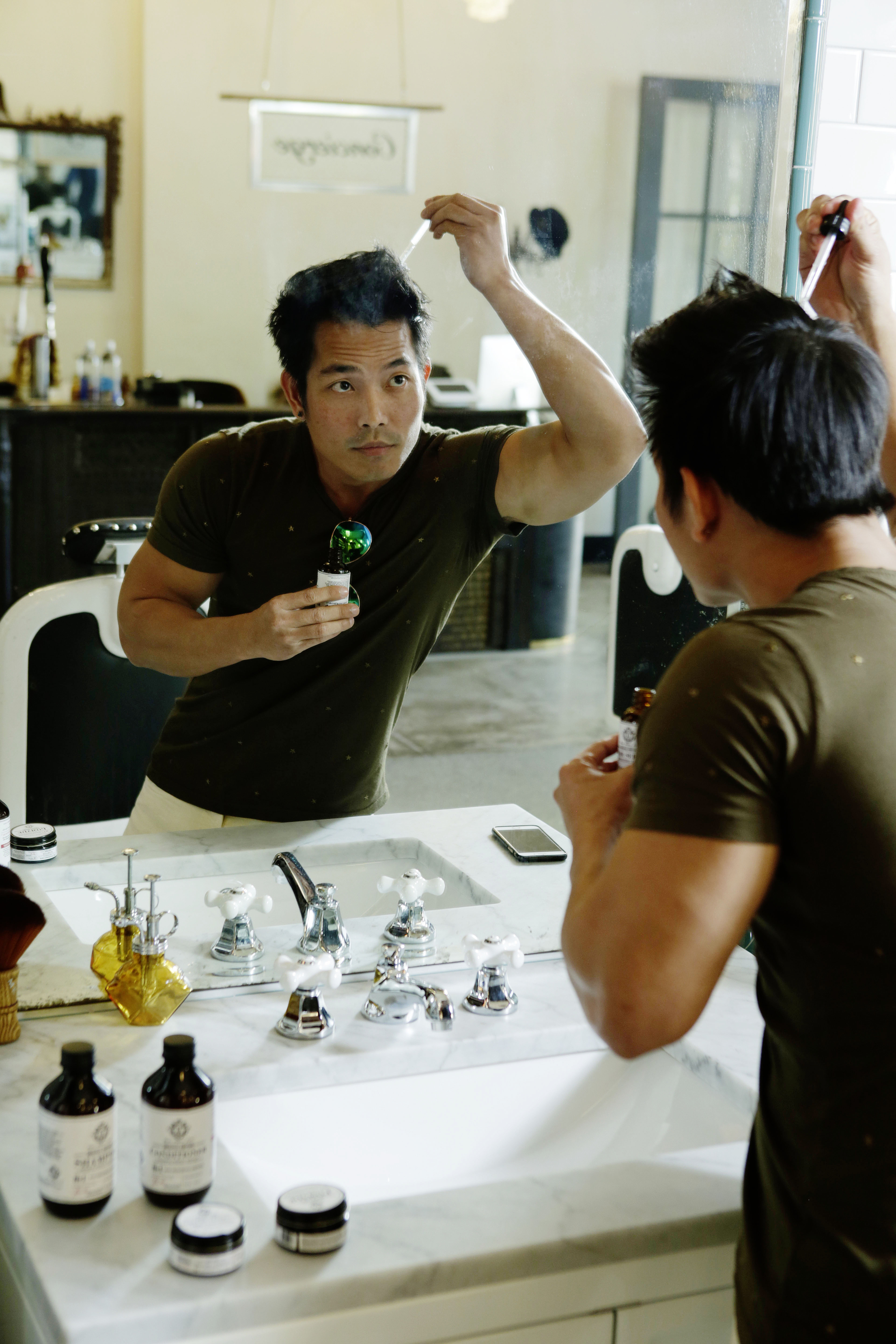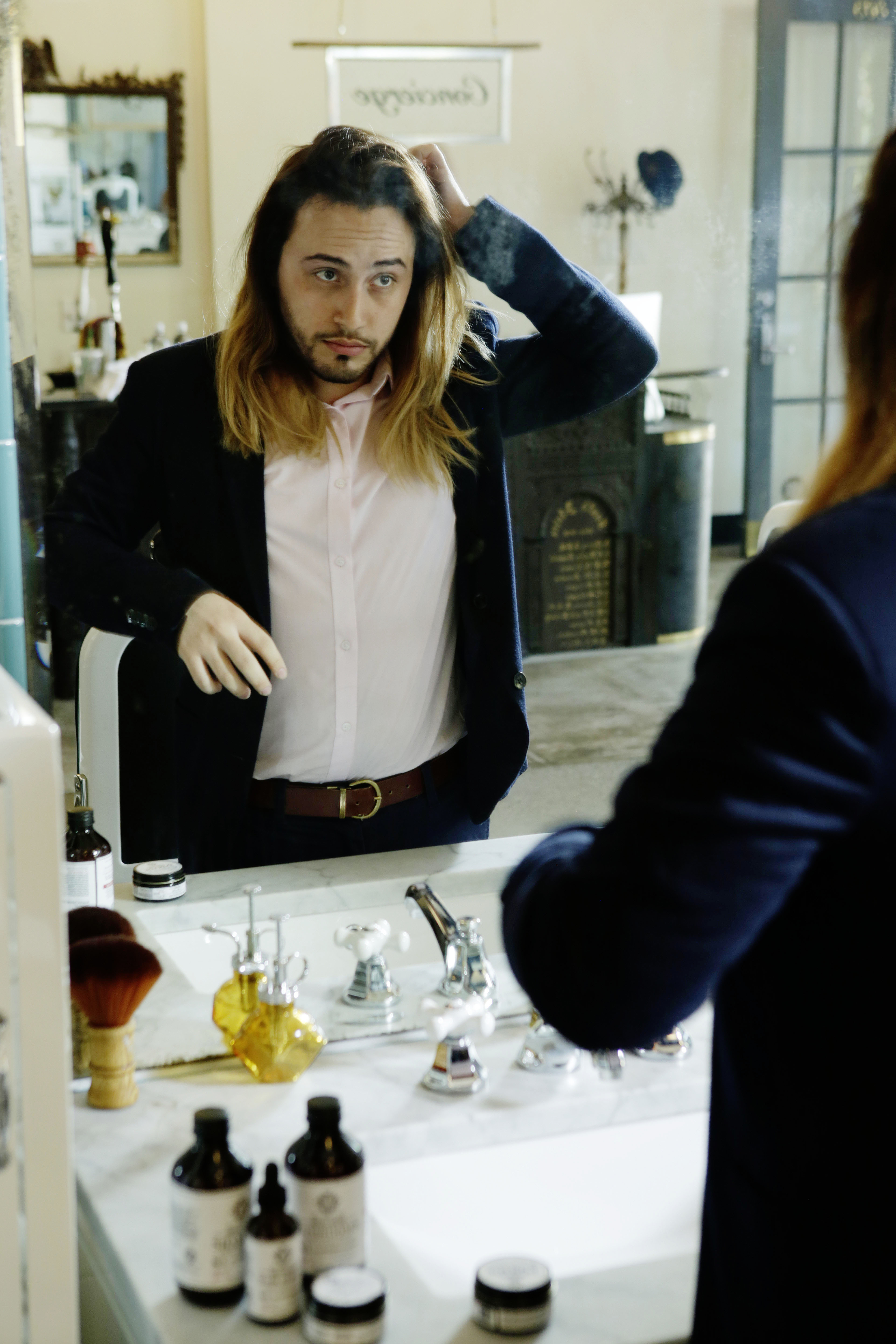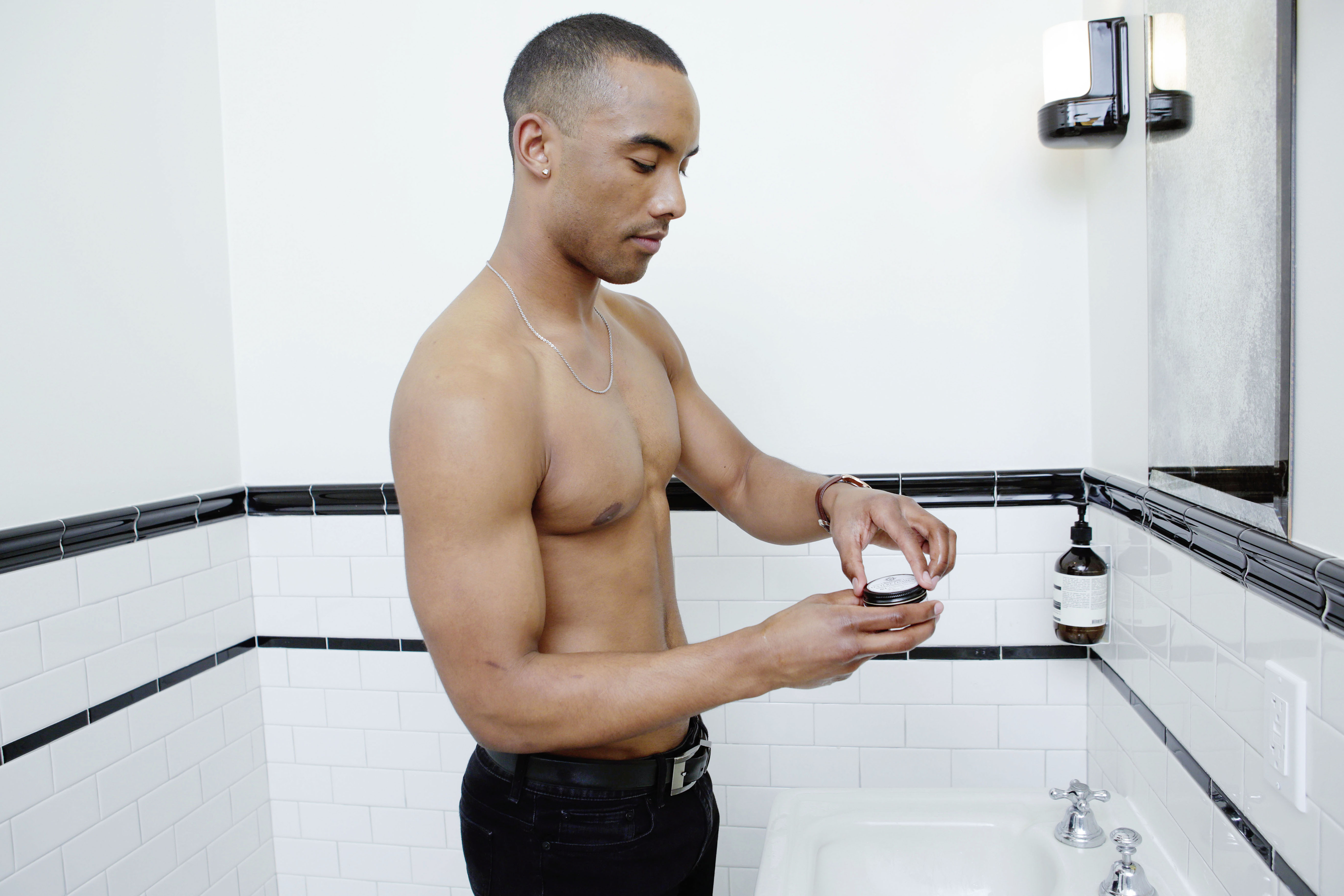10 Proven Benefits of Vitamin B3 (Niacin)
Taking care of your health and appearance starts with the foods you consume and the products you use on a regular basis. This is particularly important in regard to your hair, especially if you’re prone to hair-specific issues.
While there’s a wide range of nutrients required in order to maintain optimal hair health, niacin is certainly a key vitamin. When applied topically, it can significantly improve the look and feel of your hair.
Required for every component of your body, niacin — more commonly known as Vitamin B3 — supports healthier, more luscious hair. Since it can also improve your general health if your intake of this key vitamin is low, it’s critical that you’re aware of its role in terms of your well-being.
Whether you’re looking to achieve thicker looking hair or simply maintain stronger, healthier looking hair, here’s how niacin can assist you.
What Exactly Is Niacin and How Is It Used in Products?
Niacin, or vitamin B3, is a critical water-soluble vitamin for both your internal and external health. In fact, niacin is required throughout your entire body. While your general health relies on a balanced intake of nutrients, including all complex B vitamins, niacin is often used for beauty purposes — especially in relation to the skin and hair.
Before diving into the benefits associated with B3, it’s important to discuss the two forms of this essential nutrient: niacinamide and nicotinic acid. Both of these chemical forms have a unique effect on the human body. That is why you should be familiar with the products you use, based on the ingredients they contain.
In fact, when taken orally in supplement form at high doses, niacin can cause what’s known as niacin flush — a side effect that causes the blood vessels close to the skin to dilate, resulting in a burning or tingling sensation. In comparison, niacinamide does not cause this phenomenon.
In regard to hair health, niacinamide is most commonly used. Niacinamide is a gentler form, offering key benefits for not only your hair but also your skin and eyes. As a topical product, niacinamide is often used to combat signs of aging and is also the most studied form.
In addition, one of the best things about B3 is that it works synergistically with other beneficial nutrients, such as biotin, enhancing the overall positive effects. That is why you should invest in quality hair products, as they offer ingredients that actively make your hair visibility healthier.

Using Vitamin B3 in Beauty and, More Specifically, Hair Products
Used in everything from shampoos to hair tonics and bath products to skin moisturizers, niacin can help improve the appearance of your skin and hair. Best of all, it’s easy to implement into your regular beauty routine.
While niacinamide is naturally found in various meats, eggs, milk, and green vegetables, the benefits of consuming this vitamin orally may not be as quick or effective as topical treatments. This is especially true when you specifically aim to improve the look and feel of your hair.
Topical products are highly effective when aiming to administer niacin. You can now source niacin for your hair by purchasing quality shampoos and conditioners, as well as other products that encourage optimal hair health while supporting each individual’s unique style.
7 Benefits Associated with Niacin and Hair Health
Whether you’re trying to improve the moisture balance of your hair or would simply like to improve the visible health of your scalp, here’s what B3-containing products can do for your hair.
1. May Improve a Healthier Appearance of Your Hair Follicles
Niacin has the ability to improve the appearance of your scalp and hair, especially when using topical products. For example, this shampoo contains niacinamide, offering your hair ongoing, external support.
This is important because hair follicles tend to be extra sensitive. If your hair and scalp do not get the nutrients they require, hair loss can occur. After all, your hair has roots within your scalp — a lack of oxygen and nutrients impacts all cells, including hair cells.
2. Promotes Visibly Thicker Hair
Based on the fact that a reduction in blood flow can result in the thinning of hair, it makes sense that niacin would be able to promote the look and feel of thicker hair. As stated in this study, the skin on your scalp is much like the skin everywhere else on your body, requiring select nutrients — in this case, niacin.
Aiding in the stimulation of new hair growth, your hair may become noticeably thicker when using niacin-rich products on a regular basis, like this fortified conditioner. In one key study, published in the Journal of Cosmetic Dermatology, the researchers showed that niacin increased hair fullness.
Please note: If you’re concerned about visible thinning, be sure to check out the benefits associated with platelet-rich plasma (PRP) treatment, or robotic hair restoration.
3. Increases the Moisture Balance of Your Skin
If your scalp is dry and damaged, chances are your hair will suffer as well. Locking in moisture, niacin can help prevent dry hair and the development of dandruff. More specifically, niacin has been shown in clinical studies to target DNA repair, which could include any potential DNA damage in relation to your scalp and hair.
When using this hair serum, for instance, you can lock moisture in based on niacin’s ability to increase skin proteins in your scalp’s lipid barrier, protecting against dryness. More specifically, there is increased production of ceramides, which are the lipids in your skin that retain water.

4. Improves the Efficiency of Keratin Synthesis
Niacinamide increases protein synthesis, also known as keratin, as reported in this key study. Providing a stimulating effect, topical niacinamide also offers a stabilizing effect while promoting an increase in protein — which is essential in regard to stronger, more elastic hair.
In fact, hair shafts are made up of approximately 98 percent protein. This means that a lack of B3 may contribute to the weakening of your hair and, in turn, impacts overall hair health and growth. More specifically, you may notice that your hair is rather limp and lifeless.
5. Reduces Inflammation
There are a number of skin disorders that can negatively impact your scalp, most of which are caused by inflammation. While treating acne, for instance, researchers found that B3 could help manage inflammatory lesions without any negative side effects.
In some cases, autoimmune conditions can cause excessively dry skin and symptoms such as dandruff and itching. Since this vitamin is safe and effective, products containing B3 may offer you a long-term solution to an inflamed scalp. The combination of biotin and B3 can offer even greater anti-inflammatory effects. Certainly, if there is any persistent inflammation or other medical concerns with your scalp, you should always seek a consultation with a medical doctor.
6. Protects Against Environmental Damage
Although facial skin can quickly become damaged by the sun, your scalp is also highly susceptible to damage when exposed to UV rays for an extended period of time. Since laboratory data suggest that B3 can initiate DNA repair while increasing the rate of cellular reproduction, products rich in this vitamin could possibly support the healing of skin damaged by the sun’s UV rays.
This is because of B3’s ability to support cell turnover — which is why niacinamide is also often studied as the niacin derivative that may help reduce one’s risk of skin cancer, as reported in this 2017 study.
If you often use hot styling tools or color your hair, ensure you apply niacin daily in order to rebuild your hair. In addition to other key ingredients, niacin hair products will allow you to fix the look of brittle, dry hair, as well as possibly other scalp issues.
7. Helps Regulate Oil Production
Studies have shown that topical niacinamide may impact sebum production and excretion rates. This study, published in the Journal of Cosmetic and Laser Therapy, found that when participants were treated with topical 2% niacinamide, overall sebum extraction rates were significantly lower after two and four weeks.
Since too much oil can cause plugged sebaceous glands, which may become itchy and uncomfortable, it’s important to target your scalp if it’s excessively oily. In this case, the products you use are important, especially your shampoo and conditioner, as well as any other products used on a regular or even daily basis — such as a quality pomade.
3 Additional Beauty Benefits Associated with B3
Outside of positive hair health, B3 also yields many benefits associated with the skin. In fact, a B3 deficiency is typically characterized by problematic skin. Studies have shown that the topical application of niacinamide can help reverse the signs of declining levels of key B3 enzymes.
Whether you would like to minimize the appearance of your pores or simply protect your skin against oxidative stress, here’s what B3 can offer your beauty regimen, particularly in relation to your skin.
8. Helps You Achieve a More Even-looking Skin Tone
Much like your scalp, extended sun exposure can cause damage and, in this case, hyperpigmentation. This causes melanocytes (a specific type of cell) to produce melanosomes, which can then impact the pigment of your skin. Although niacin does not stop production, it has been shown to inhibit the transfer of these pigment granules.
One study found that when applying a skin cream that contained 5% niacinamide for eight weeks, age spots around the participants’ eyes and cheeks diminished and a more even skin tone was achieved. The researchers concluded that niacinamide offers a wide range of extraordinary cutaneous benefits.

9. May Help Improve Worsening Acne
As the most common skin condition in the United States, affecting as many as 50 million Americans on an annual basis, acne can cause self-esteem issues. In addition to its anti-inflammatory properties, shown in laboratory research, B3 has a positive impact on acne because of the way in which it regulates lipid profiles.
After all, acne patients tend to showcase abnormal lipid profiles. Upon studying patients for 12 weeks, this study found that high doses of B3 can help combat symptoms of acne. In addition, those who suffer from skin conditions that cause red skin and bumps may also benefit from a topical B3-based product.
10. Supports an Anti-Aging Regimen
One of the main benefits associated with niacin is its ability to reduce fine lines and wrinkles. A shown across a wide range of studies, including this study published in Dermatologic Surgery, niacin can support anti-aging regimens. In previous studies, topical niacinamide was well-tolerated by the skin, offering a range of improvements in the skin’s appearance.
To study this relationship further, researchers applied 5% niacinamide to the faces of 50 participants. The niacinamide significantly reduced the look of fine lines and wrinkles. It also reduced the appearance of red blotches, hyperpigmented spots, and the yellowing of the skin. In addition, the skin’s elasticity improved.
It is also important to note that niacin can help combat the thinning of the dermis and epidermis, which occurs as you age — due to niacin’s ability to repair and maintain healthy skin. Much like niacin’s role in improving the health of hair follicles, a consistent supply of oxygen must be available to support metabolic, cellular functions. Since niacin has the ability to increase the available supply of oxygen, skin cells can significantly benefit.
Outside of the above benefits, niacin also has a positive impact on various internal organs and systems, including its ability to impact cholesterol levels while supporting heart and brain health. Researchers continue to study the impact in which this vitamin has on hair, skin, and general health. After all, niacin is directly involved in cellular metabolism, energy production, and overall brain function.
Have questions about the types of niacin-containing products you desire? If so, please contact us. Also, to stay in the know regarding the latest resources and services backed by medical research, be sure to follow us on Instagram
